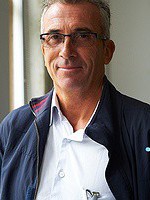abstract
Green liquor dregs are the most challenging waste stream coming from the pulp and paper industry. Despite tremendous efforts, there are not currently any viable recycling alternatives for this massively produced waste (2 Mt/year), which inevitably ends up in landfills. Urgent actions must be undertaken to tackle this. In this work, a substantial amount of dregs was incorporated into eco-friendly, waste-based inorganic polymer (geopolymer) mortars as fine filler. Then, and for the first time, the long-term strength performance (up to 270 days) and heavy metals leaching behaviour of the dregs-containing mortars was evaluated. The effect of the mixture composition and dregs incorporation content on the fresh- and hardened-state properties of the mortars was also studied. Dregs were found to increase the initial and final setting time of the slurries, thus extending the open time before their in-situ application. The use of dregs as fine filler effectively enhances the compressive strength of the mortars, and decreases their water absorption levels. These eco-friendly building materials showed excellent long-term performance, as their strength continuously increases up to the 270th day (after mixture), and no signs of efflorescence formation were detected. Moreover, the heavy metals leaching levels of the mortars were well below the contamination limits in soil, which demonstrates the feasibility of this recycling methodology. (C) 2019 Elsevier Ltd. All rights reserved.
keywords
ASH-BASED GEOPOLYMER; BIOMASS FLY-ASH; MECHANICAL-PROPERTIES; PAPER-INDUSTRY; RAW-MATERIAL; WASTE GLASS; PULP; SLAG; SPHERES; METALS
subject category
Science & Technology - Other Topics; Engineering; Environmental Sciences & Ecology
authors
Novais, RM; Carvalheiras, J; Senff, L; Seabra, MP; Pullar, RC; Labrincha, JA
our authors
acknowledgements
This work is financed by Portugal 2020 through European Regional Development Fund in the frame of Operational Competitiveness and Internationalization Programme (POCI) in the scope of the project PROTEUS - POCI-01-0247-FEDER-017729 and in the scope of the project CICECO -Aveiro Institute of Materials CTM/50011 (Compete Reference: POCI-01-0145-FEDER-007679), Associated Laboratory of University of Aveiro, co-financed by Fundacao para a Ciencia e a Tecnologia. RCP acknowledges the support of FCT Grant IF/00681/2015.







